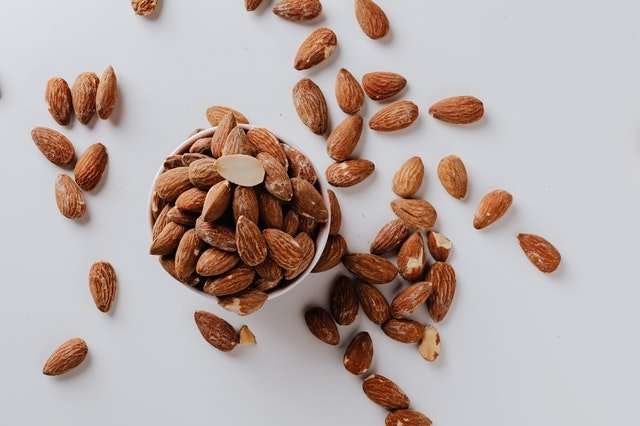
Protein is an essential nutrient and should make up 10-35% of your daily caloric intake. This nutrient provides amino acids, which make up protein, which is critical for cell function and growth. It can be difficult to get enough protein on a vegetarian or vegan diet, but it doesn’t mean you have to eat meat to reach this caloric percentage.
One common misconception about vegetarians and vegans is that they do not meet the USDA recommendation of consuming 1 gram of protein per kilogram of body weight.
You can actually meet these recommendations by following a few guidelines:
- Beans, lentils, and other legumes: 8-12 grams per ½ cup serving (legumes such as beans lentils also count as a source of fiber and minerals)
- Nuts: 6-8 grams per ¼ cup serving (almonds, pistachios, cashews, and peanuts are some of the highest in protein)
- Seeds: 5 grams per 2 tablespoons (chia, hemp, and flaxseeds are high in protein)
- Quinoa: 4-8 grams per ½ cup cooked
- Tofu: 8 grams per 3 ounces
- Greek yogurt: 10 grams per 6 ounces
- Whey protein powder: about 25 grams per scoop
You can also meet your protein needs by combining different plant-based sources of protein and, for example, having a tofu stir fry with quinoa for dinner or a peanut butter and jelly sandwich on whole-wheat bread for lunch.
It is important to remember that plant-based proteins are not as complete as animal-based proteins, so it’s important to mix up your sources to ensure you are getting all the essential amino acids your body needs.
If you are still concerned about whether you are getting enough protein on a vegetarian or vegan diet, consult with a registered dietitian. They can help you create a meal plan that meets your specific dietary needs.
Also don’t forget, there are many plant-based protein powders on the market that can also help you reach your daily protein goals. If in doubt have a look at meal delivery services that offer plant-based proteins.
Protein deficiency is fairly rare unless you are very ill or have some other medical condition that is limiting your diet. But if you’re asking this question for another reason, here are a few things to consider.

- Vegetarians don’t eat meat, but they do eat dairy products and eggs. So although these vegetarians aren’t getting their protein from meat, they are still getting it from another animal source. Ovo-Lacto vegetarians simply avoid flesh foods (meat) but do eat both eggs and dairy products. Vegans, on the other hand, do not eat any animal products at all.
- The body needs about 50 grams of protein per day in most cases, so as long as you are eating a varied and balanced diet, you are likely getting enough protein. However, there are some plant-based sources of protein that are particularly high in protein. These include lentils, black beans, tofu, quinoa, and chia seeds.
- If you are vegan or Lacto-vegetarian and looking for a good plant-based source of protein, consider adding tofu or quinoa to your diet. Tofu is made from soybeans and is a complete source of protein, meaning it contains all the essential amino acids your body needs. Quinoa is also a complete source of protein, as well as a good source of fiber and minerals like magnesium and potassium.
So, as you can see, there are many ways to get enough protein on a vegetarian or vegan diet. You can meet your daily needs by consuming a variety of plant-based proteins, such as beans, lentils, nuts, seeds, and quinoa. If you are still concerned about getting enough protein, consult with a registered dietitian.
They can help you create a vegan meal plan that meets your specific dietary needs. Protein deficiency is rare in healthy adults who eat a varied and balanced diet, but it’s always important to make sure you’re getting enough of this essential nutrient. Thanks for reading!
